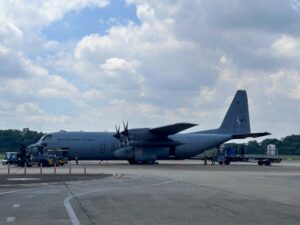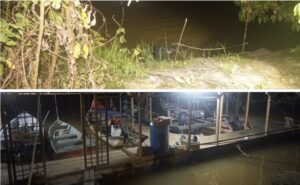KOTA KINABALU, Oct 17 — The Election Commission’s announcement of Sabah’s 17th state election date has set the stage for a bruising contest, with cracks already showing in coalitions and loyalties being tested across the political divide.
Allies are turning wary of one another as differences come to light, particularly within the ruling six-party Gabungan Rakyat Sabah (GRS) coalition and its federal partners in Pakatan Harapan (PH).
Chief Minister and GRS chairman Datuk Seri Hajiji Noor recently said seat negotiations with PH had concluded, but added that voters would see the full picture come nomination day.
With alliances shifting and boundaries blurring, this could be Sabah’s most fluid and unpredictable election yet.
STAR, SAPP quit government in a high-stakes gamble
One of the biggest shocks came when Parti Solidariti Tanah Airku (STAR) and Sabah Progressive Party (SAPP) pulled out of GRS. The decision, touted as a bid to champion a fully localised government, has shaken the coalition to its core.
STAR president Datuk Seri Jeffrey Kitingan, currently facing scrutiny over a corruption probe, declared that the party had “had enough” and would go it alone — reuniting with long-time ally SAPP to push the “Sabah for Sabahans” agenda.
The gamble was costly from the start. Five of STAR’s six assemblymen quit the party and pledged allegiance to GRS, leaving Kitingan with control of just one seat. Analysts warn that the move could split the local non-Muslim native (Kadazandusun Murut, or KDM) vote and weaken the broader Sabah-centric movement.
Still, Kitingan — a veteran of political reinvention — appears undeterred, banking on grassroots frustrations over autonomy and infrastructure to fuel support.
The split, however, raises serious questions about GRS’s cohesion and its role as a vehicle for Sabah’s self-determination.
Meanwhile, Parti Bersatu Sabah (PBS) is keeping the door open for STAR to honour its earlier pact to work together in the coming state polls instead of dividing the community again.
Upko eyes contesting under own logo
In another twist, United Progressive Kinabalu Organisation (Upko), a Sabah-based PH component, has hinted at contesting under its own logo instead of the coalition’s.
Party insiders say some leaders believe the PH logo may dilute Upko’s local identity, and that some distance from the national coalition could better reflect Sabah’s political realities.
While the decision has not been finalised, the discussion has fuelled speculation about PH’s internal coherence and revived debate about whether the “Sabah for Sabahans” sentiment is still driving voter behaviour.
It also underscores ongoing disagreements over seat allocations, with Upko believed to be pushing for a larger share given its local roots and influence.
PKR faces backlash over ‘parachute candidates’
Sabah PKR, meanwhile, is facing its own storm. The party’s yet-to-be-finalised candidate list has sparked uproar over so-called “parachute candidates” — figures allegedly being fielded in constituencies where they lack local ties.
Among them is former Sipitang MP Datuk Yamani Hafez Musa, son of Yang di-Pertua Negeri Tun Musa Aman, who is rumoured to contest the Sindumin seat under PKR. The party leadership has refused to confirm either his membership or candidacy.
Other names stirring discontent include former Kemabong assemblyman Datuk Jamawi Jaafer, who has shifted between Umno and Warisan before landing in PKR, and ex-Education Ministry secretary-general Datuk Ruji Ubi, reportedly eyeing Merotai.
A leaked candidate list, believed to have come from within the party, has gone viral on social media, further fuelling anger among division leaders — several of whom have warned that the party machinery may not back outsiders imposed from the top.
DAP turmoil: ex-chairman quits amid internal rift
Sabah DAP has not escaped the turmoil either. Former state chairman Datuk Frankie Poon and potential candidate Liau Fui Fui recently quit, citing dissatisfaction over being replaced without consultation.
Alongside that, several DAP branches on the east coast have also shut down.
The departure underscores how even nationally anchored parties struggle with local identity politics — and how being part of the government has not spared DAP from internal rivalries.
There are also whispers that DAP may consider contesting under its own logo, as it did under Warisan’s in 2018. Sources say frustration over seat talks with GRS, which reportedly left DAP with fewer seats than expected, is mounting.
Of the 23 seats PH is said to be targeting, PKR is tipped to contest 13, leaving five each for DAP and Upko, while Amanah gets none. DAP, which currently holds six state seats, is eyeing 10 and looking to expand beyond its traditional urban strongholds into the interior.
Even for a state known for its colourful politics, these pre-election tremors suggest a turbulent ride ahead.
While wrangling over seat allocations is typical before polls, much of the friction this time stems from the uneasy GRS-PH alliance, forced to balance competing ambitions among six GRS and three PH components.
GRS’s drive to maintain control in a state growing restless for autonomy often clashes with national coalition’s efforts — particularly PKR’s — to expand influence in the state.
Adding to the complexity is PH’s separate alliance with Barisan Nasional. Sabah Umno will not be content with second place and has been gearing up for a comeback since pulling out of the state government in early 2023.
With the campaign period now officially confirmed, the Election Commission (EC) says the Sabah election will run from November 15 to November 29, following the official dissolution of the 16th State Assembly on October 6.
Nomination Day is set for November 15, early voting on November 25, and polling day on Saturday, November 29.
A total of 1,784,843 voters are eligible to cast their ballots — including 1,760,417 ordinary voters, 11,697 military personnel and their spouses, and 12,729 police personnel and their spouses.





